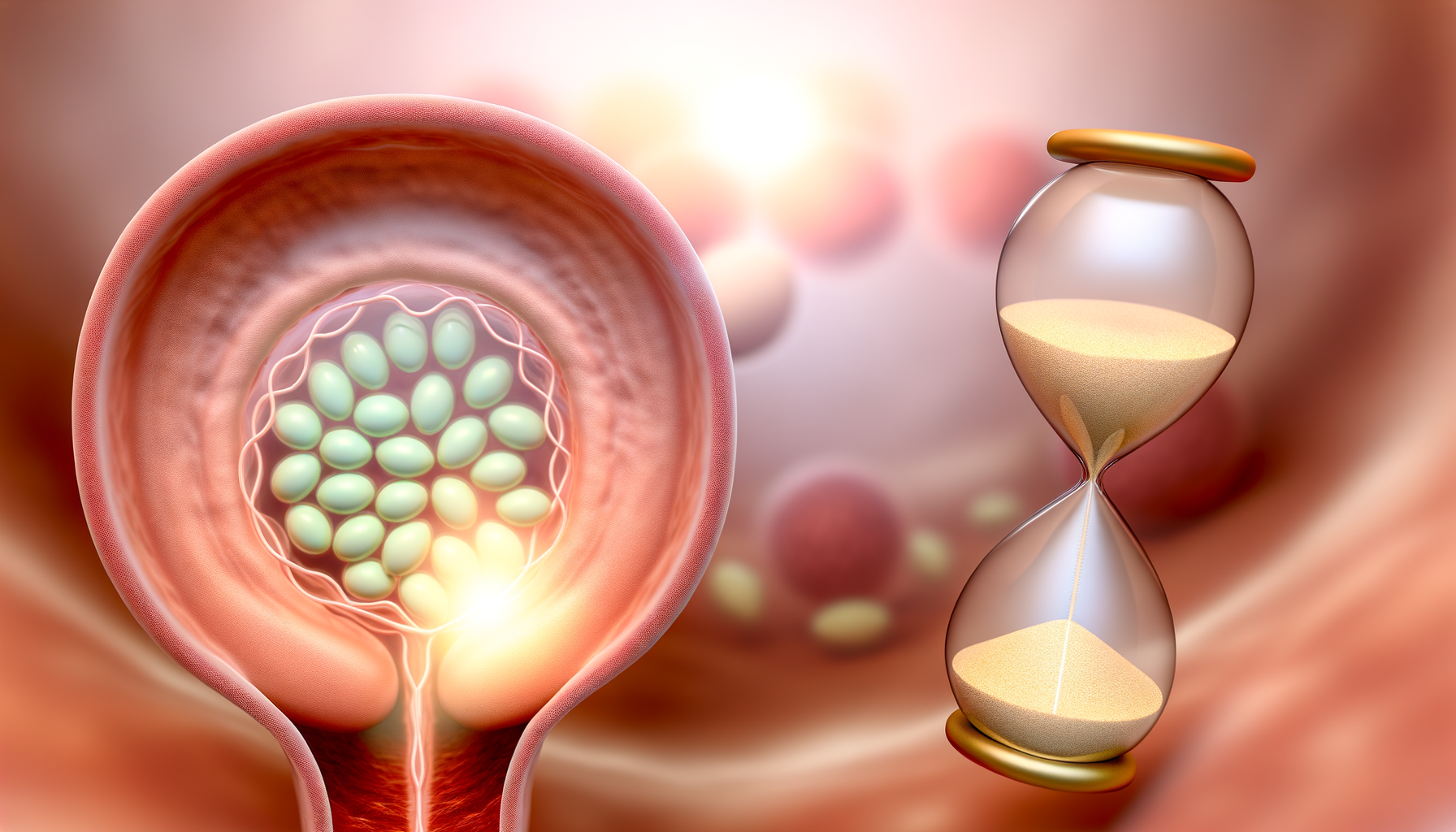Introduction to Fertility and Menopause
Understanding the Link Between Fertility Treatments and Menopause
The intersection of fertility treatments and menopause is a topic of considerable interest and concern for many women. Fertility treatments, such as in vitro fertilization (IVF) and ovarian stimulation, are designed to increase the chances of conception in women facing challenges with natural fertility. However, there is a growing body of research investigating whether these interventions could have an impact on the timing of menopause. The hormonal fluctuations induced by fertility treatments, along with the potential depletion of egg reserves, raise questions about whether such treatments could lead to an earlier onset of menopause.
Common Concerns Regarding Fertility Interventions and Hormonal Health
Women undergoing fertility treatments often express concerns about the long-term effects of these interventions on their hormonal health. The use of fertility drugs, which alter the body’s natural hormone levels to stimulate egg production, has been scrutinized for its potential link to early menopause. Additionally, the process of repeatedly stimulating the ovaries and retrieving eggs for IVF may contribute to concerns about the depletion of ovarian reserves, possibly hastening the approach of menopause.
Scope of the Article and Key Questions Addressed
This article aims to explore the complex relationship between fertility treatments and the onset of menopause. It will delve into the biological basis of egg reserves in women, analyze research on oocyte retrieval and menopause timing, and investigate the role of ovarian reserve in reproductive aging. By addressing common misconceptions and providing evidence-based insights, the article seeks to offer clarity on whether fertility treatments can indeed cause early menopause. Key questions include the impact of fertility drugs on menopausal timing, the significance of personalized medical advice, and the emotional and psychological aspects of fertility treatment.
Understanding Female Infertility
Causes of Infertility in Women
Infertility in women can be attributed to a variety of factors, which can be broadly categorized into ovulatory, tubal and pelvic, and uterine disorders. Ovulatory disorders, which may manifest as menstrual irregularities, account for approximately 30% of infertility cases. Tubal and pelvic disorders include blockages or damage to the fallopian tubes, while uterine disorders encompass conditions such as fibroids or polyps that may interfere with the implantation of the embryo or the growth of the fetus.
The Role of Genetics and Lifestyle in Fertility
Genetics and lifestyle both play significant roles in a woman’s fertility. Genetic factors can predispose women to conditions such as Polycystic Ovary Syndrome (PCOS) or premature ovarian insufficiency, which can impact fertility. Lifestyle factors, including diet, exercise, smoking, and alcohol consumption, can also influence reproductive health. For instance, obesity or being underweight can disrupt hormone levels and ovulation, while smoking has been linked to fallopian tube issues and early menopause.
Impact of Medical Conditions on Female Reproductive Health
Various medical conditions can have a profound impact on female reproductive health. Endocrine disorders like thyroid disease or hyperprolactinemia can disrupt menstrual cycles and ovulation. Autoimmune diseases, pelvic inflammatory disease, and sexually transmitted infections can cause damage to reproductive organs. Additionally, treatments for other medical conditions, such as chemotherapy or radiation for cancer, can have detrimental effects on a woman’s egg supply and fertility.
It is important to note that while fertility treatments such as IVF are often thought to lead to early menopause, this is a misconception. IVF treatments utilize the eggs that would otherwise not mature during a natural cycle, without depleting the overall egg reserve. Therefore, fertility treatments do not cause early menopause. Women considering fertility treatments should consult with their healthcare provider to understand the implications for their specific situation and to address any concerns they may have.
Overview of Fertility Treatments
Common Fertility Treatments and Their Purposes
Fertility treatments encompass a range of medical interventions designed to increase the chances of conception and successful pregnancy. These treatments are often sought after by couples or individuals facing infertility challenges. The most common fertility treatments include:
- Intrauterine Insemination (IUI): A procedure where sperm is directly inserted into the uterus around the time of ovulation.
- In Vitro Fertilization (IVF): Eggs are retrieved from the ovaries and fertilized with sperm in a lab, with the resulting embryos transferred to the uterus.
- Ovulation Induction: Medications are used to stimulate ovulation in women who have irregular or absent menstrual cycles.
- Superovulation: Similar to ovulation induction, but aims to induce the release of multiple eggs to increase the chances of conception.
Mechanisms of Intrauterine Insemination (IUI) and In Vitro Fertilization (IVF)
IUI is often the first line of treatment, particularly for couples with unexplained infertility or mild male factor infertility. It involves the placement of washed and concentrated sperm directly into the uterus, which bypasses any potential barriers in the cervix and brings the sperm closer to the released egg.
IVF is a more advanced and effective treatment, especially for more severe infertility issues. It involves multiple steps, starting with ovarian stimulation to produce multiple eggs, followed by egg retrieval, fertilization in a laboratory setting, and embryo transfer. IVF can also incorporate additional techniques such as Intracytoplasmic Sperm Injection (ICSI) for severe male infertility or Preimplantation Genetic Testing (PGT) for genetic screening.
Ovulation Induction and Superovulation
Ovulation Induction is used for women who do not ovulate regularly. Medications such as clomiphene citrate or gonadotropins are prescribed to initiate the development of ovarian follicles. The goal is to achieve the release of a single healthy egg.
Superovulation, on the other hand, aims to stimulate the development of several follicles at once to increase the chances of multiple eggs being available for fertilization, whether through natural intercourse, IUI, or IVF. Careful monitoring is essential to avoid the risks associated with multiple pregnancies and Ovarian Hyperstimulation Syndrome (OHSS).
The Egg Reserve Debate
Biological Basis of Egg Reserves in Women
The concept of a woman’s ovarian reserve is central to understanding her reproductive potential. The ovarian reserve refers to the pool of eggs present in the ovaries at any given time. These eggs, or oocytes, are contained within structures called primordial follicles, which are formed during fetal development. A woman is born with all the primordial follicles she will ever have, and this number decreases with age. The decline in the number of primordial follicles and the quality of the remaining eggs are key factors in the natural decrease in fertility and the eventual onset of menopause.
Myths and Misconceptions About Egg Depletion
One common misconception is that fertility treatments, such as in vitro fertilization (IVF), deplete a woman’s egg reserves more rapidly than natural aging. This belief stems from the fact that multiple eggs are retrieved during IVF cycles. However, it is important to understand that these eggs would have been lost in that menstrual cycle anyway, as the body typically recruits a cohort of follicles each cycle, from which usually only one becomes dominant and ovulates, while the rest undergo atresia (natural cell death).
Expert Opinions on Fertility Treatments and Egg Reserve
Experts in reproductive medicine assert that fertility treatments do not cause early menopause. The use of fertility drugs stimulates the ovaries to mature multiple eggs from the cohort that has already been recruited for that cycle. This process does not “use up” more eggs than would have been lost naturally. In fact, the hormonal changes associated with fertility treatments can temporarily mask symptoms of declining ovarian reserve, such as irregular periods, giving some women a false impression that their fertility is unaffected.
It is also important to note that the age at which a woman begins fertility treatments is a more significant predictor of her chances of success and the potential impact on her ovarian reserve. Women who delay childbearing until their late thirties or early forties have a naturally lower ovarian reserve, which can be reflected in their response to fertility drugs and their chances of conceiving through assisted reproductive technologies.
In conclusion, while the natural decline in egg quantity and quality can pose challenges to fertility, current evidence does not support the notion that fertility treatments accelerate the depletion of ovarian reserves or induce early menopause. Women considering fertility treatments should consult with their healthcare providers to understand the implications for their individual reproductive health and potential outcomes.
Investigating the Risk of Early Menopause
The Relationship Between Fertility Treatments and Menopause Onset
One of the most pressing concerns for women undergoing fertility treatments is the potential impact on the timing of menopause. The fear that interventions such as in vitro fertilization (IVF) could lead to an earlier onset of menopause persists despite evidence to the contrary. It is essential to understand that IVF does not deplete the ovarian reserve more than what would naturally occur. During a typical menstrual cycle, multiple eggs begin to mature, but only one reaches full maturation, while the rest are absorbed back into the body. IVF medications stimulate these otherwise unused eggs, optimizing their potential without reducing the overall egg count.
Analyzing Research on Oocyte Retrieval and Menopause Timing
Recent studies have sought to clarify the relationship between fertility treatments and the timing of menopause. A study published in the American Journal of Obstetrics & Gynecology found that while a history of infertility or miscarriage may increase the risk of early menopause, the use of fertility treatments such as IVF has not been shown to have a direct correlation with early menopause onset. This is corroborated by research indicating that the number of oocytes retrieved during IVF does not significantly advance the age of menopause. Women undergoing IVF treatments can be reassured that the process is designed to utilize eggs that would otherwise not mature, rather than accelerating the depletion of their ovarian reserve.
Understanding the Role of Ovarian Reserve in Reproductive Aging
The concept of ovarian reserve is central to understanding reproductive aging. The ovarian reserve refers to the pool of eggs present in the ovaries at any given time, which naturally diminishes with age. Menopause occurs when the ovarian reserve falls below a critical threshold. While it is true that certain medical conditions and lifestyle factors can influence the rate of egg loss, controlled ovarian hyperstimulation used in IVF is not synonymous with hastening menopause. Instead, it is a process that maximizes the potential of the eggs within a given cycle. It is important to note that poor response to ovarian stimulation may be indicative of a diminished ovarian reserve, which could be a risk factor for earlier menopause. However, this is a reflection of pre-existing reproductive health, not a consequence of the fertility treatment itself.
In conclusion, while the natural decline in ovarian reserve is an inevitable part of aging, fertility treatments such as IVF have not been proven to cause early menopause. Women considering or undergoing fertility treatments should consult with their healthcare providers to understand their individual risks and the implications for their long-term reproductive health.
Addressing Concerns and Misconceptions
Clarifying the Impact of Fertility Drugs on Menopause
One of the most prevalent concerns among women undergoing fertility treatments is the potential impact of fertility drugs on the onset of menopause. Misconceptions often arise from anecdotal experiences and the misinterpretation of symptoms that mimic menopausal signs. It is crucial to understand that fertility drugs are designed to stimulate the ovaries to produce multiple eggs during a single cycle, but they do not deplete the overall egg reserve or advance the age of menopause. The hormonal fluctuations experienced during treatments may temporarily produce symptoms similar to those of menopause, such as hot flashes or mood swings, but these are not indicative of a permanent change in reproductive status. Women should be reassured that fertility treatments do not cause early menopause and any concerns should be discussed with a fertility specialist.
The Importance of Personalized Medical Advice
Given the individual variability in response to fertility treatments, it is imperative that women receive personalized medical advice from their healthcare providers. A thorough medical evaluation, including a review of the patient’s reproductive history, underlying medical conditions, and family history, is essential to tailor treatment plans effectively. Genetic factors, lifestyle choices, and pre-existing medical conditions can all influence fertility and should be considered when assessing the risks and benefits of fertility treatments. Women are encouraged to seek advice from a reproductive endocrinologist who can provide evidence-based recommendations and address any misconceptions.
Navigating Emotional and Psychological Aspects of Fertility Treatment
The journey through fertility treatment can be emotionally taxing, with highs and lows that can affect one’s psychological well-being. It is not uncommon for patients to experience stress, anxiety, or depression during this period. Recognizing the emotional and psychological challenges is a critical component of fertility care. Support groups, counseling, and stress-reduction techniques can be beneficial adjuncts to medical treatment. Healthcare providers should actively discuss these aspects with their patients and offer or refer them to supportive resources. A holistic approach that addresses both the physical and emotional health of women undergoing fertility treatments can improve overall outcomes and patient satisfaction.
In conclusion, while fertility treatments involve complex hormonal manipulations, they do not inherently cause early menopause. It is essential for women to receive personalized medical advice and to have access to emotional and psychological support throughout their fertility journey. By addressing these concerns and misconceptions, healthcare providers can empower women with accurate information and support, helping them make informed decisions about their reproductive health.
Conclusion and Recommendations
Summarizing the Evidence on Fertility Treatments and Menopause
The relationship between fertility treatments and the onset of menopause has been a subject of concern for many women undergoing such interventions. The evidence gathered from various studies suggests that while fertility treatments, particularly IVF, do involve the use of hormonal stimulation to optimize egg maturation and retrieval, they do not appear to significantly deplete ovarian reserves or directly cause early menopause. The process of IVF capitalizes on eggs that would otherwise not mature, rather than diminishing the overall egg count. Furthermore, the symptoms experienced during IVF treatments, which may mimic those of menopause, are typically temporary and related to the medications used rather than an indication of premature ovarian aging.
Final Thoughts on Fertility, Egg Reserve, and Menopause
It is essential to understand that the natural process of egg development and loss is a monthly occurrence in women of reproductive age, and IVF treatments aim to utilize the eggs that would naturally be lost. The misconception that IVF accelerates menopause is not supported by substantial scientific evidence. Instead, factors such as genetics and lifestyle choices have a more pronounced impact on the timing of menopause. Women undergoing IVF are often concerned about their long-term reproductive health, but studies have shown that the procedure itself does not significantly affect the onset of menopause or deplete ovarian reserves prematurely.

Recommended by Health Care Professionals.
Loved by thousands of women who got their life back.
Recommendations for Women Considering Fertility Treatments
- Consult with a Fertility Specialist: Before embarking on any fertility treatment, it is crucial to have a thorough consultation with a fertility specialist to understand the implications and tailor a treatment plan that suits your individual needs.
- Understand the Risks and Benefits: Be well-informed about the potential risks and benefits of the treatments available. This knowledge will help in making an informed decision and setting realistic expectations.
- Consider Genetic and Lifestyle Factors: Be aware of your family history and lifestyle factors that may influence your fertility and the timing of menopause. Early monitoring and lifestyle adjustments can be beneficial.
- Explore All Options: If you have concerns about the impact of fertility treatments on your ovarian reserve or menopause, discuss alternative strategies with your healthcare provider, such as milder stimulation protocols.
- Seek Support: The emotional and psychological impact of fertility treatments can be significant. Seek support from counseling services, support groups, or mental health professionals as needed.



















